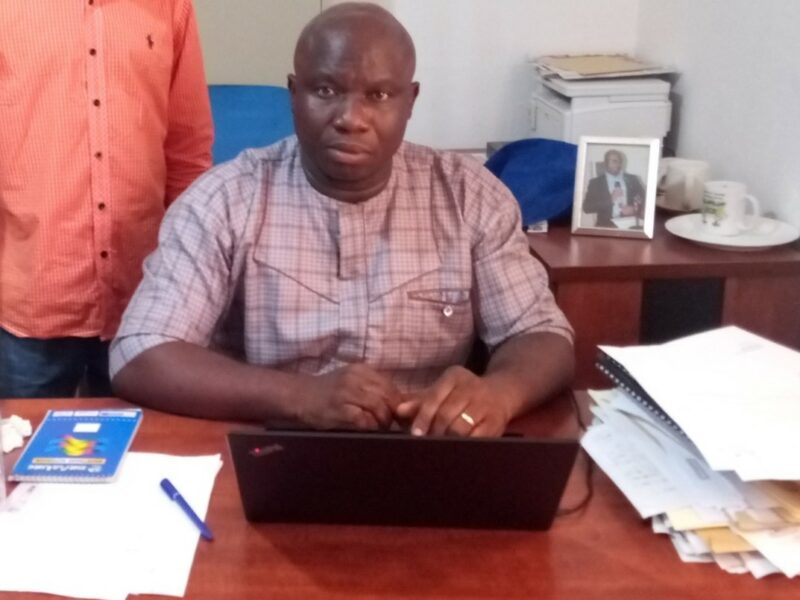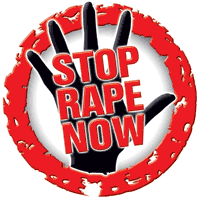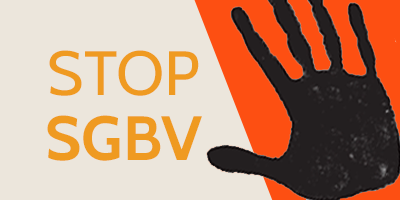UNDP and FSU end community outreach & training to reverse “Menace of gender based violence” in Makeni, Bo, Kenema and Freetown
Freetown, 21st November, 2011 — UNDP and the Family Support Unit (FSU) of the Sierra Leone Police have ended series of community outreach sessions across the country to help end the “menace of sexual and gender based violence (SGBV) that is on the increase since the end of the war.” The outreach sessions in all four cities, included a float parade with brass brands in the major streets, starting in Makeni on the 8th November and ended in Freetown Monday 21st November 2011. The awareness raising session attracted over 2,000 people including teenage pupils, community and gender activists as well as police officers of the FSU.
The street parades which also took place in BO (on the 12th) and Kenema (on the 16Th) were followed by a training sessions for FSU officials on the new Case Management manual developed by FSU with financial and technical support from UNDP. The manual aims to strengthen FSU officers to more effectively investigate and prosecute cases of SGBV in the courts.
Director of Crime Services of the Sierra Leone Police, Morie Lengor said at the Miatta Conference Centre in Freetown that the FSU is an important arm of the police and will be provided the support required to eliminate gender and sexual based violence. Mr. Lengor called on the teenage pupils to be fearless in reporting abuse to the police. He said: “I call you, especially the young girls here, not to hesitate to report any case of violence, abuse and rape to the FSU or any police station in the country. The police will be professional and ensure that all such cases are investigated and prosecuted so that justice will prevail. I also warn you police officers, even if you are a police officer, you are not above the law. You have to lead by example and desist from domestic violence and other sexual and gender based violence”

UNDP Country Director, Mia Seppo (L) and SLP Director of Crime services, Morie Lengor led the march through the streets of Freetown (photo: UNDP: C.Thomas)
UNDP Country Director, Ms Mia Seppo, speaking directly to the young pupils present saying that Sierra Leone is emerging from a recent history of violence particularly against women and children, she said, “… you are the generation that will grow up in a different understanding of your rights… with commitments around you from state institutions to protect and defend those rights.” She noted further that the UN gives particular importance to the issue of children’s rights, women’s rights and human rights generally in different ways. UNDP supports the country through national institutions like the FSU, the police and the Ministry of Social Welfare, Gender and Children’s Affairs among others
The street campaigns and processions aim to raise awareness on SGBV to be followed up by a training session for FSU officers. The training manual which was developed with support from UNDP will help officers investigate SGBV cases more effectively especially in the area of evidence in court where there is a serious gap in capacity. There are several instances of SGBV cases thrown out of court because of lack of evidence.
In all of the campaign session in Bo, Kenema, Makeni and Freetown, various speakers spoke on the abuse of school girls by their teachers. Civil society activists called on the state to introduce policies and severe punishment for teachers who exploit their pupils sexually.
In Kenema city, the FSU line manager for Eastern Region, Assistant Superintendent Kaikai said that teenage pregnancy is a menace and the rate must be reverse in the country. She added “Eliminating SGBV is a major concern for the Sierra Leone Police generally and the FSU in particularly”
“Sexual Abuse is a menace in our society, therefore all cases of SGBV must be reported and pursued so that we can eliminate this in our communities… children as young as five and three have been raped or abused. This is unacceptable” Christiana Massaquoi, a civil society activist in Kenema said.
Titus Mansaray, also representing civil society told the gathering at the Eastern Polytechnic hall that “sexual abuse and sexual violence is a major community issue. When an abuse happens, it does not only destroy the child by destroying her future, it destroys the family, the community and consequently the whole nation.
“We call on chiefs to refer all sexual and gender based cases like rape to the FSU. Rape is not for chiefs to handle, you need to send it to the police to investigate and prosecute … as civil society we should now hold the state responsible for failing to stop sexual and gender based violence.” Titus Mansaray said.
UNDP SGBV specialist, Victoria Nwogu told the gathered students in Freetown after facilitating a question and answer session with the panel: “Don’t let anybody steal your future, protect other girls and their future and report any abuse to the FSU.”
The prevalence of incidences of SGBV in post-conflict Sierra Leone presents a serious challenge to the advancement of women’s rights and peace consolidation in Sierra Leone. In Northern Region, young girls between the ages of 5-17 years are constantly subjected to abuse, violence, rape, unlawful carnal knowledge, indecent assault and harboring among others. Despite several initiatives, there is strong criticism of police prosecutors limited capacity in investigating and prosecuting SGBV cases. The new SGBV Case Management manual seeks to address this gap. The manual provides the FSU with a practical day- to-day guidelines in responding to SGBV cases.
For more information, please contact:
Abdul Karim Bah, Communications Analyst, UNDP Sierra Leone Tel: 232 33 167 428/232 78 272 315. Email: Abdul-karim.bah@undp.org.
UNDP is the UN’s global network to help people meet their development needs and build a better life. We are on the ground in 166 countries, working as a trusted partner with governments, civil society and the private sector to help them build their own solutions to global and national development challenges. Further information can be found at www.sl.undp.org.
Stay with Sierra Express Media, for your trusted place in news!
© 2011, https:. All rights reserved.





